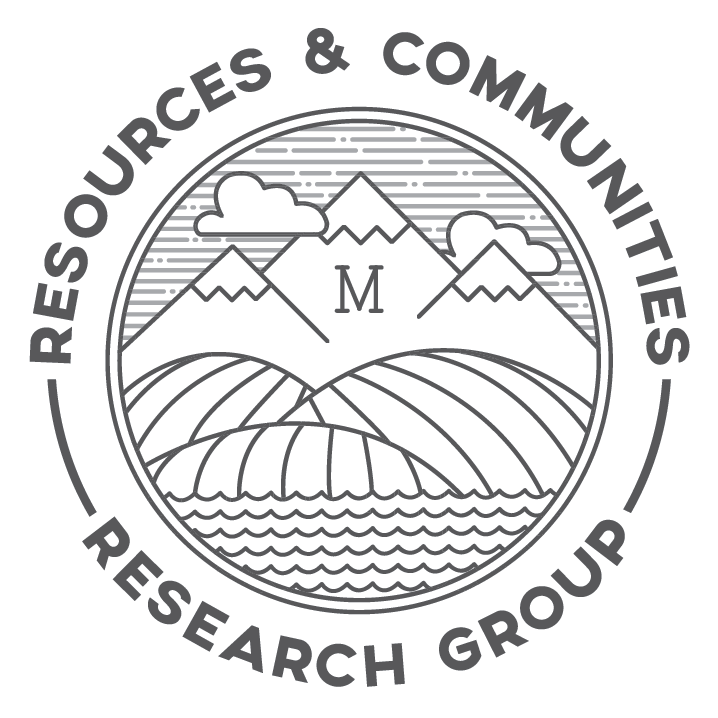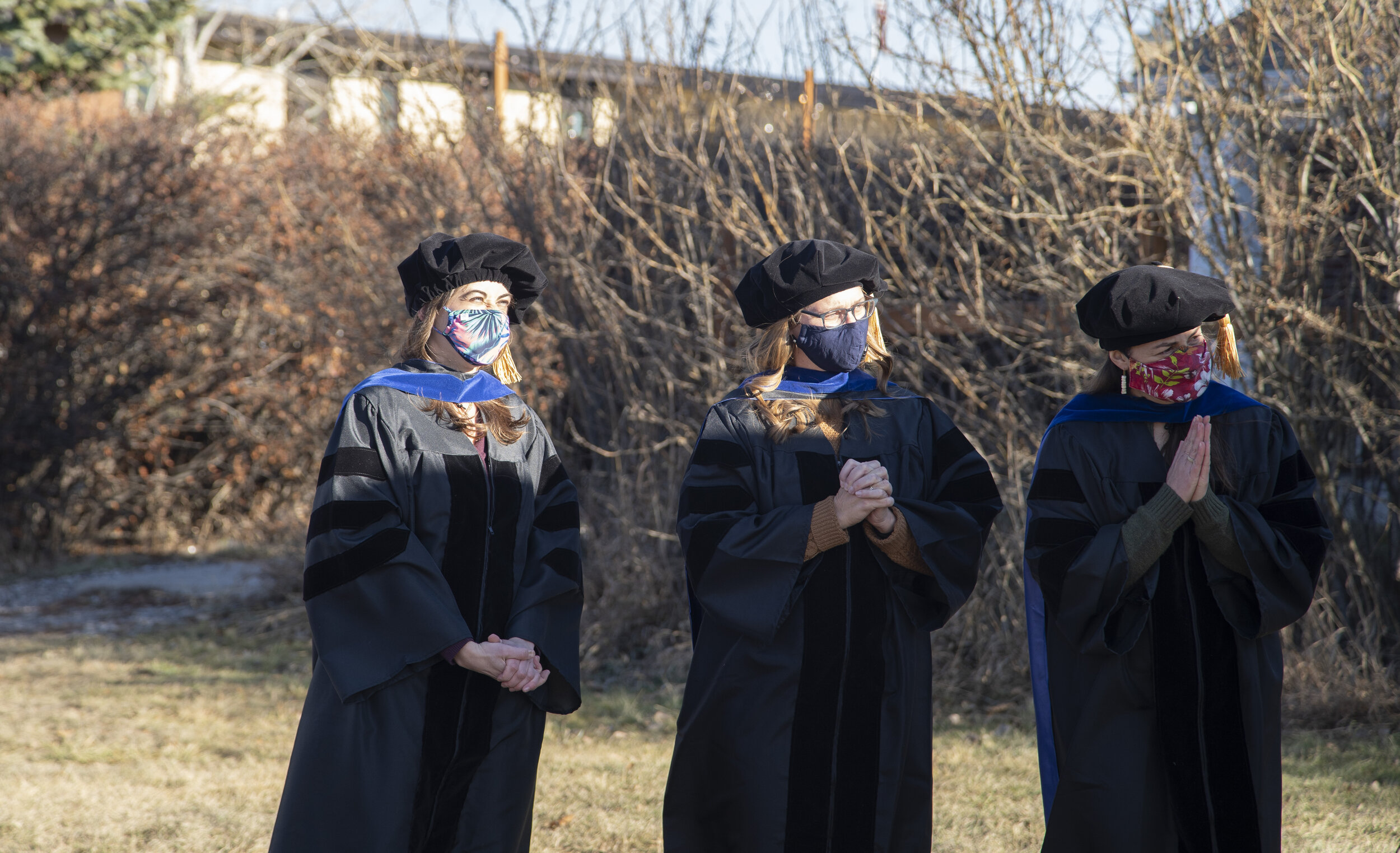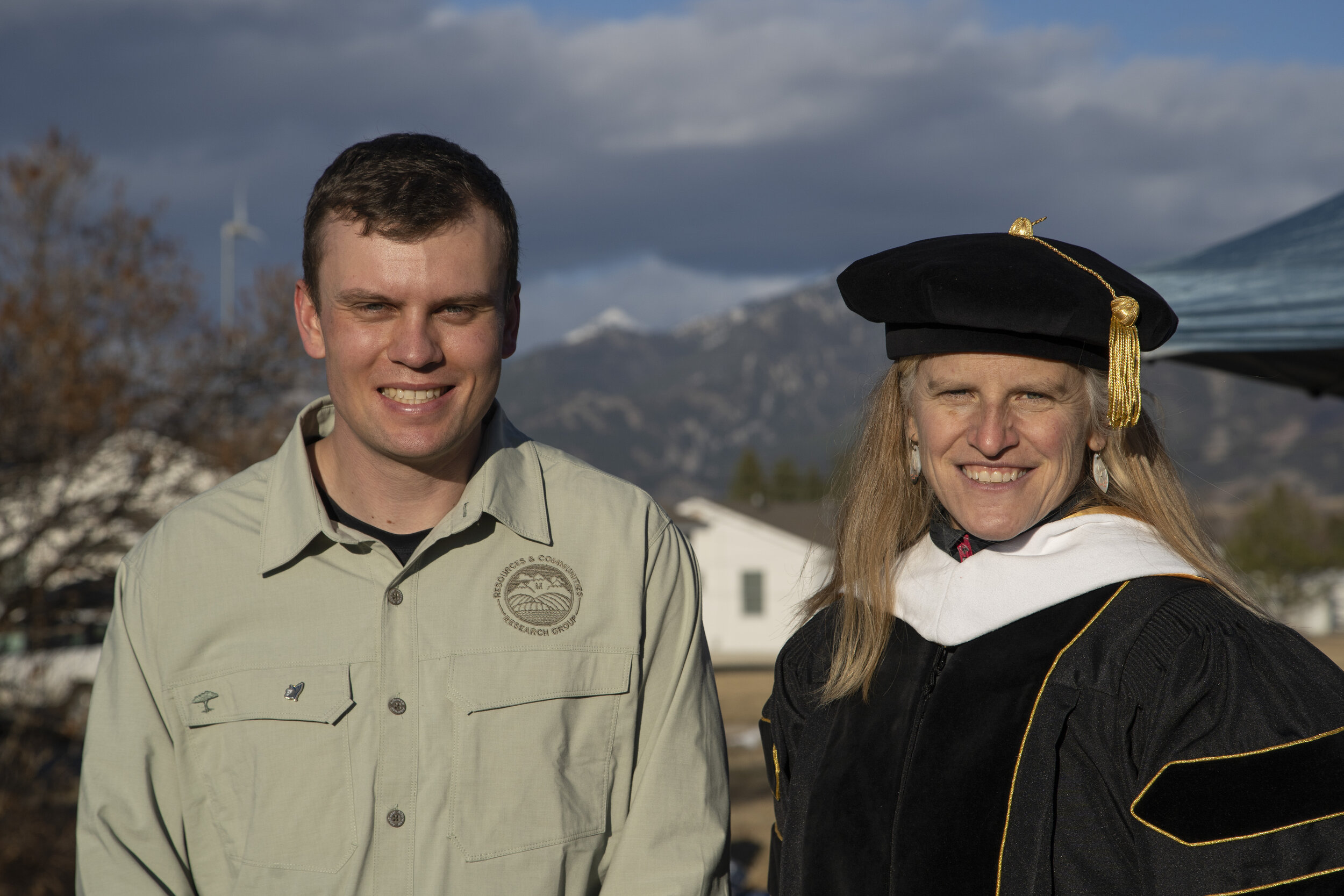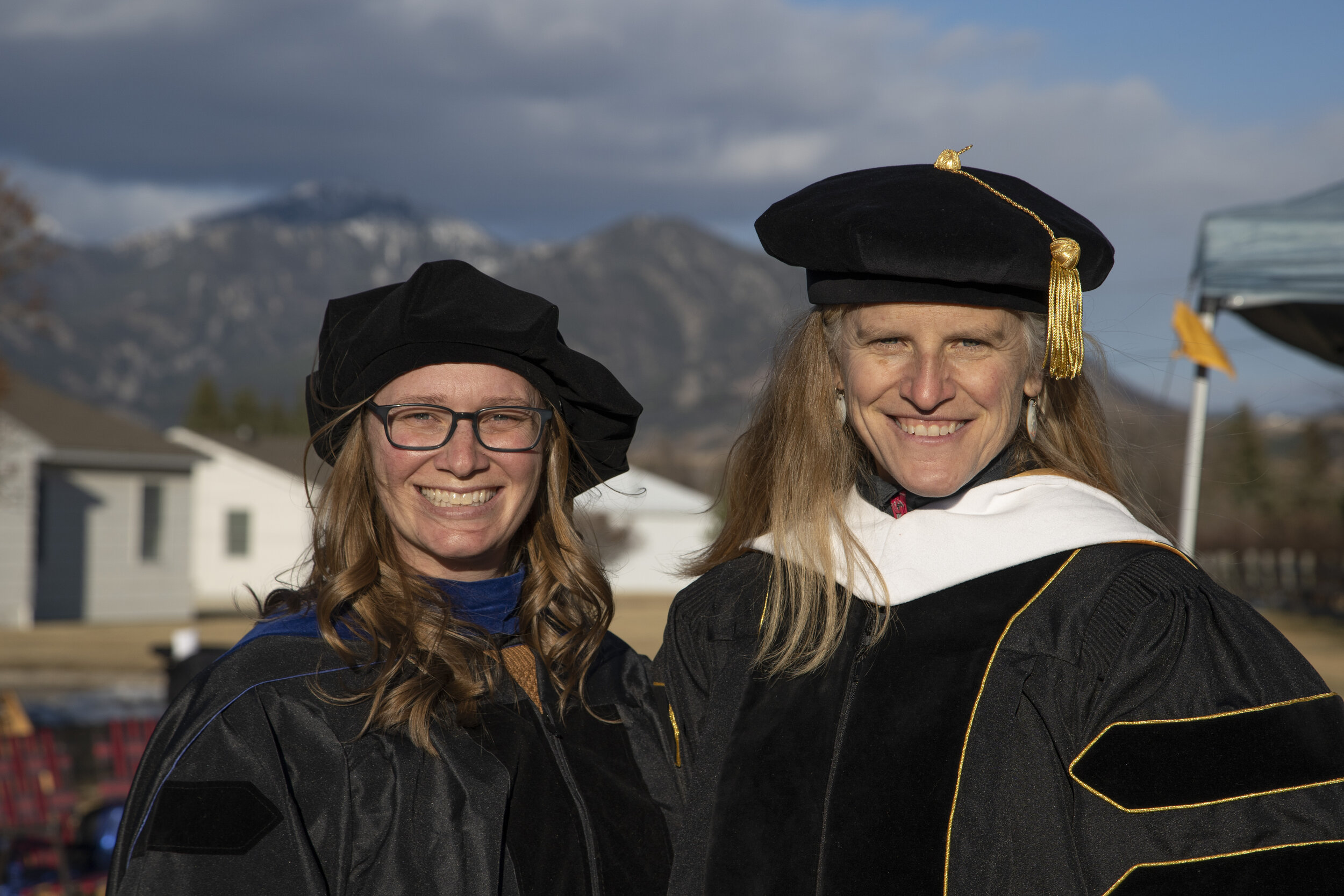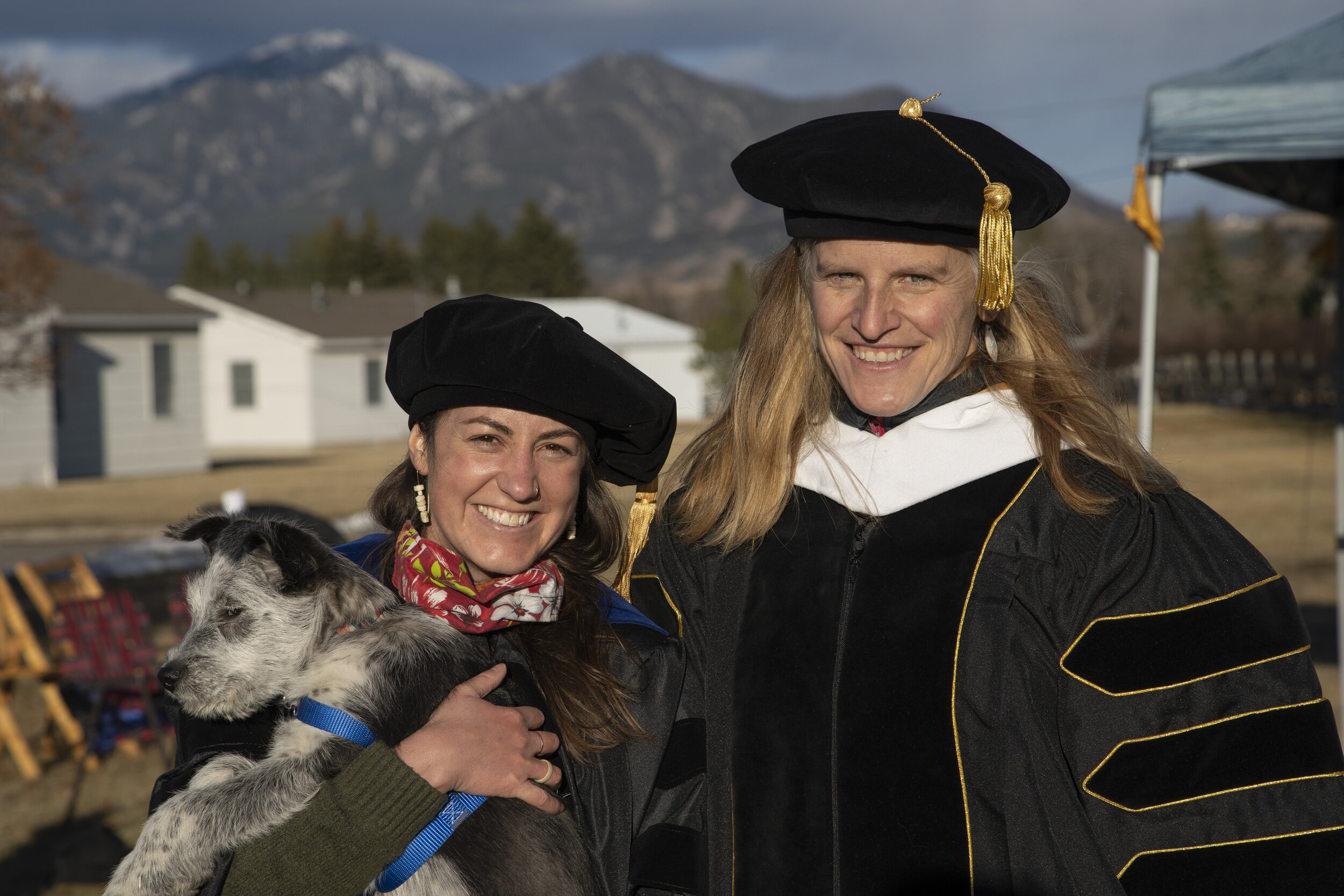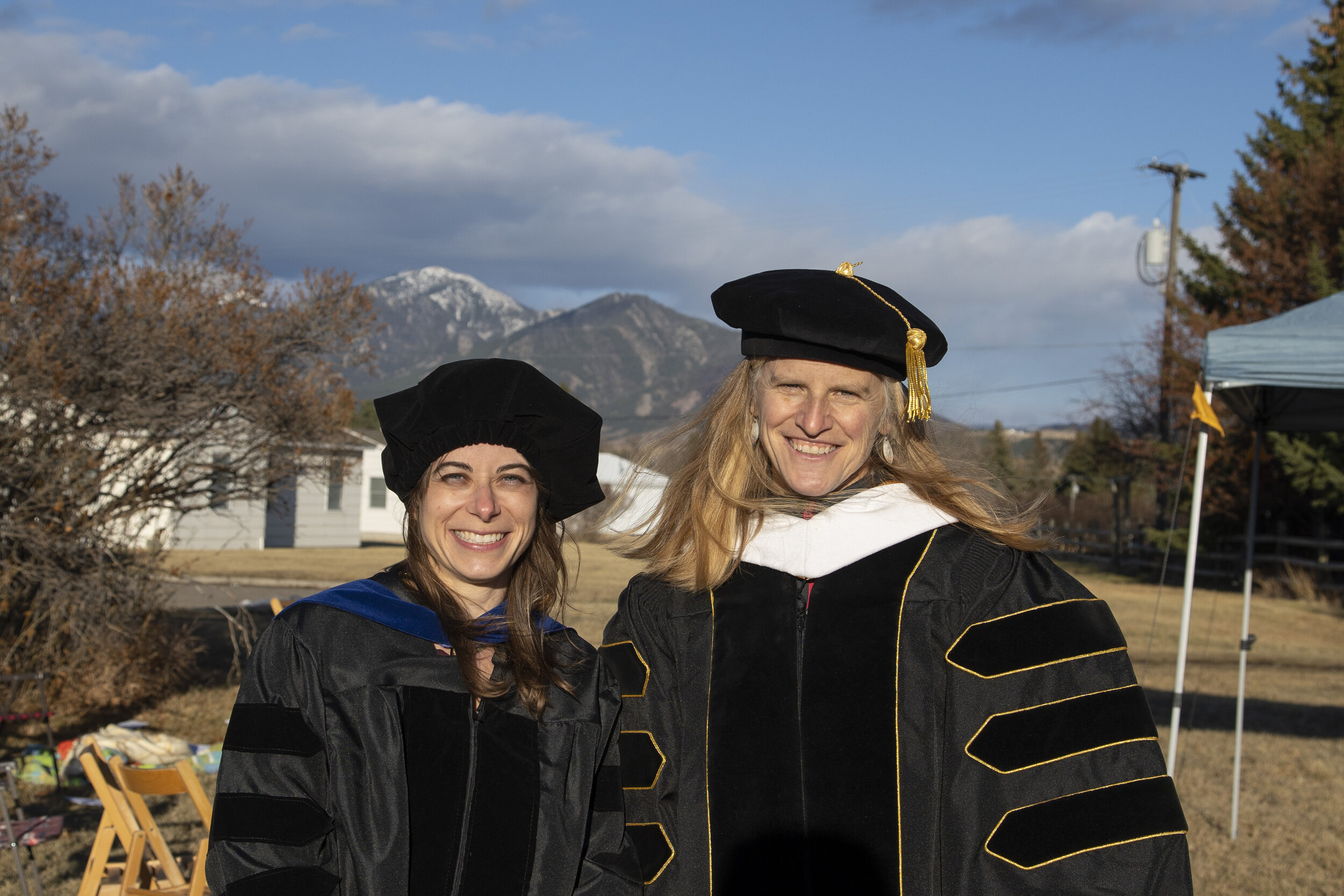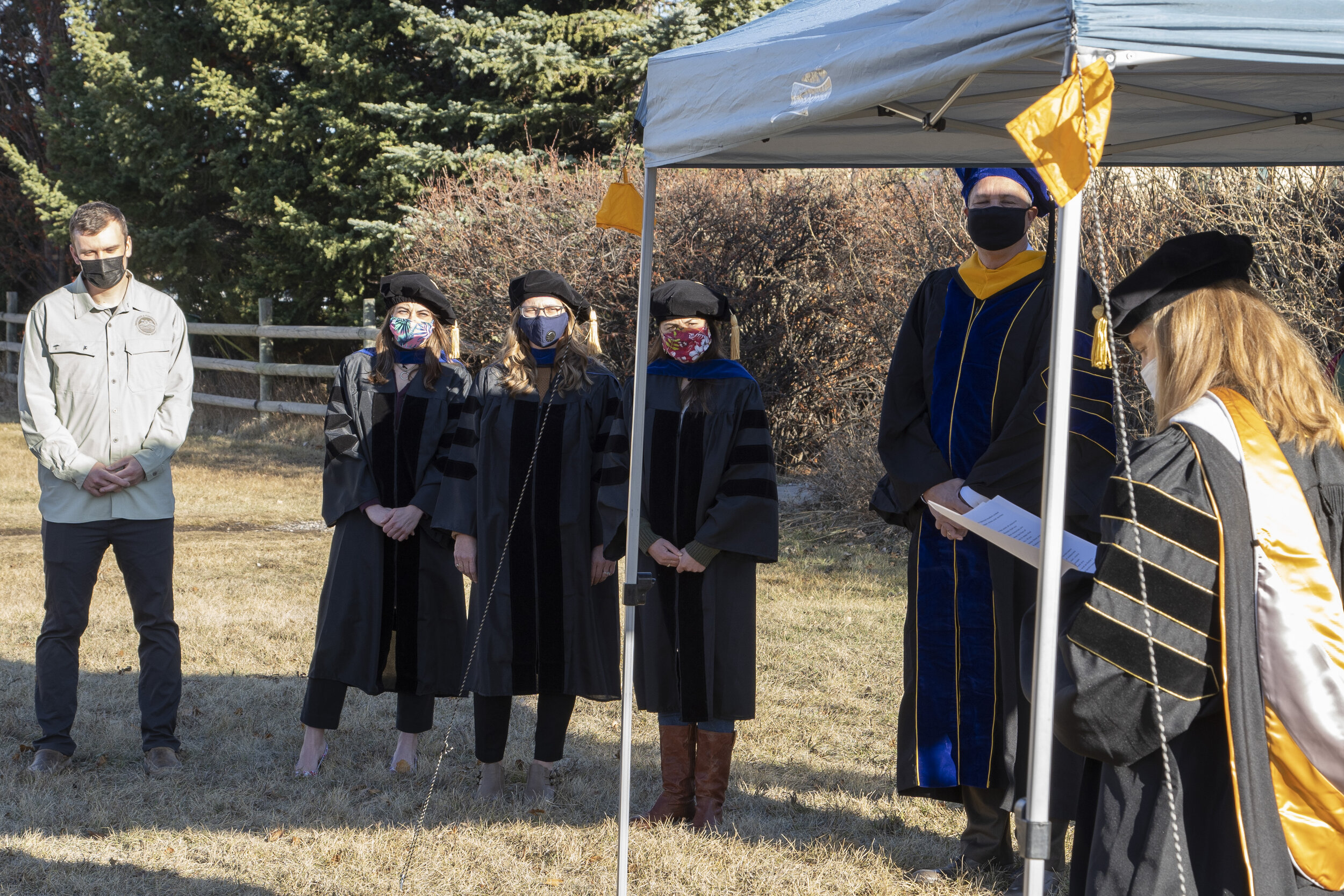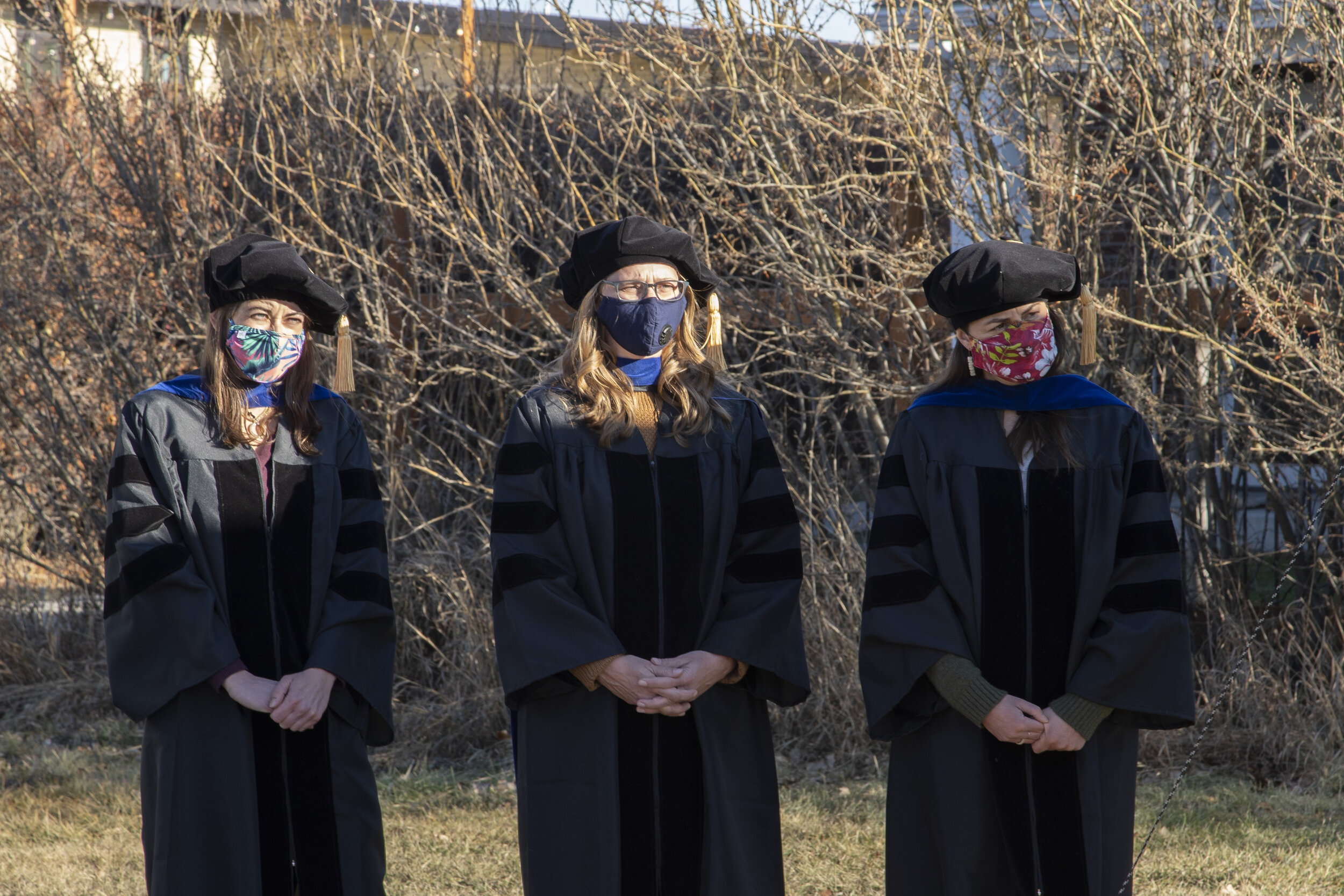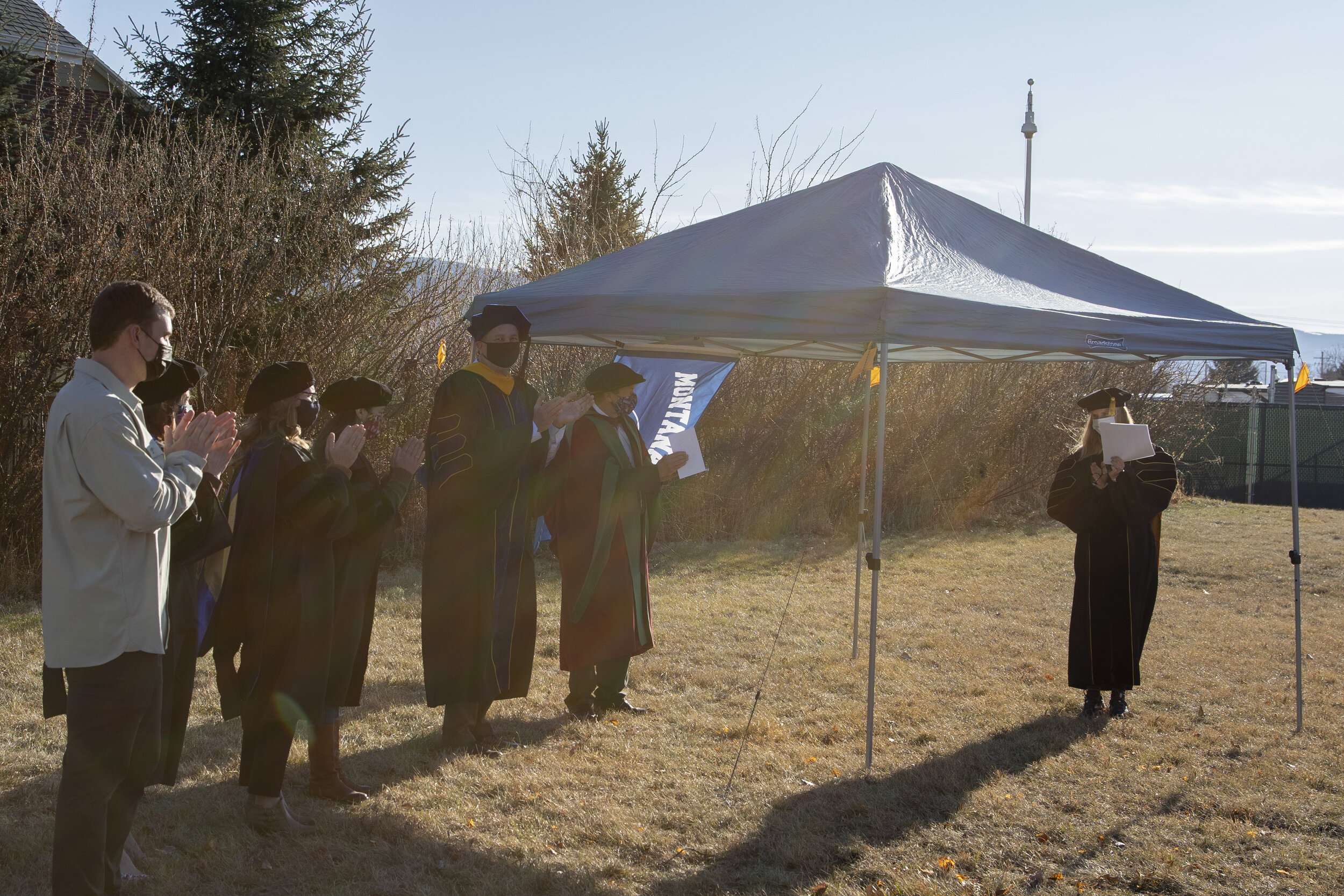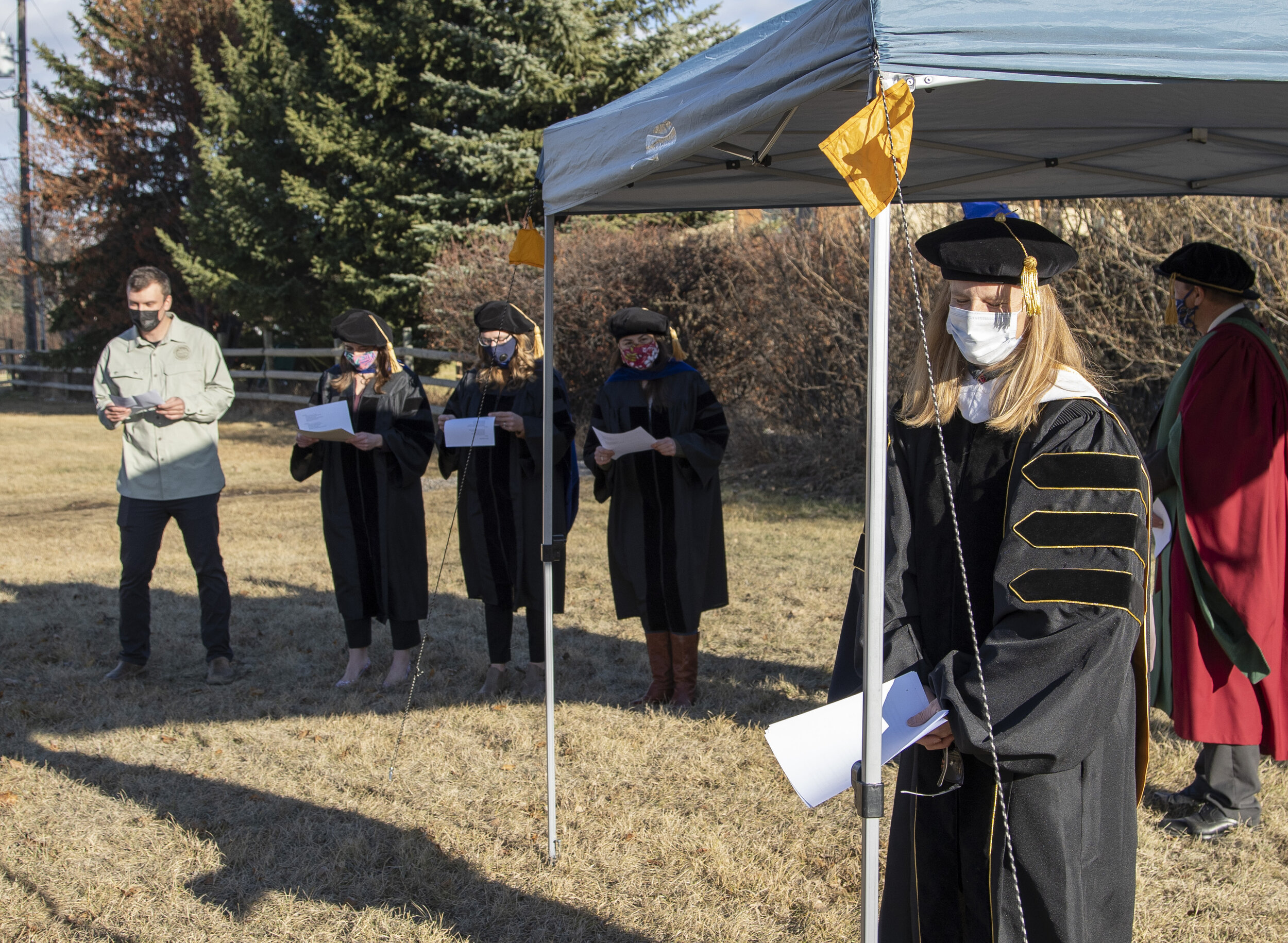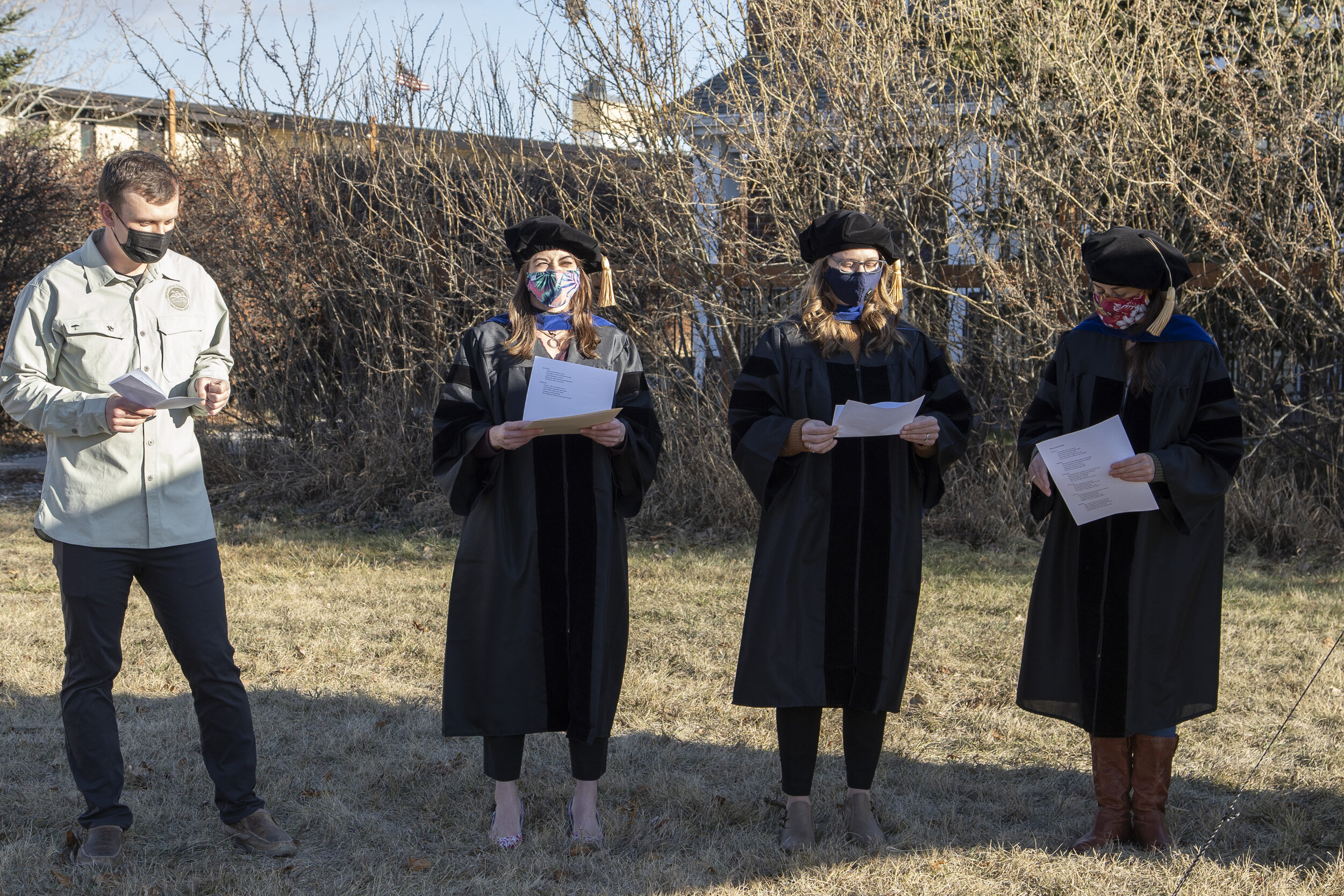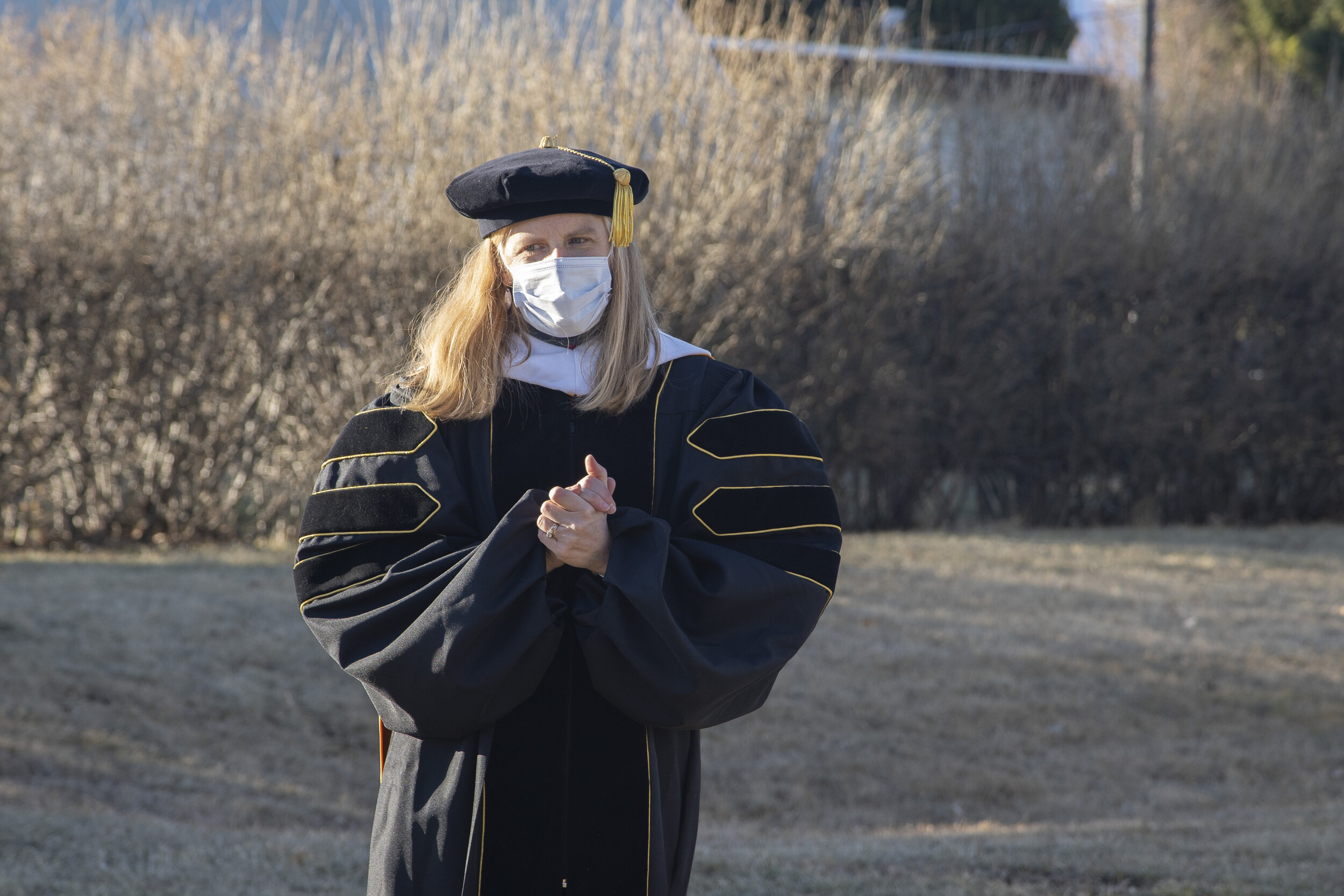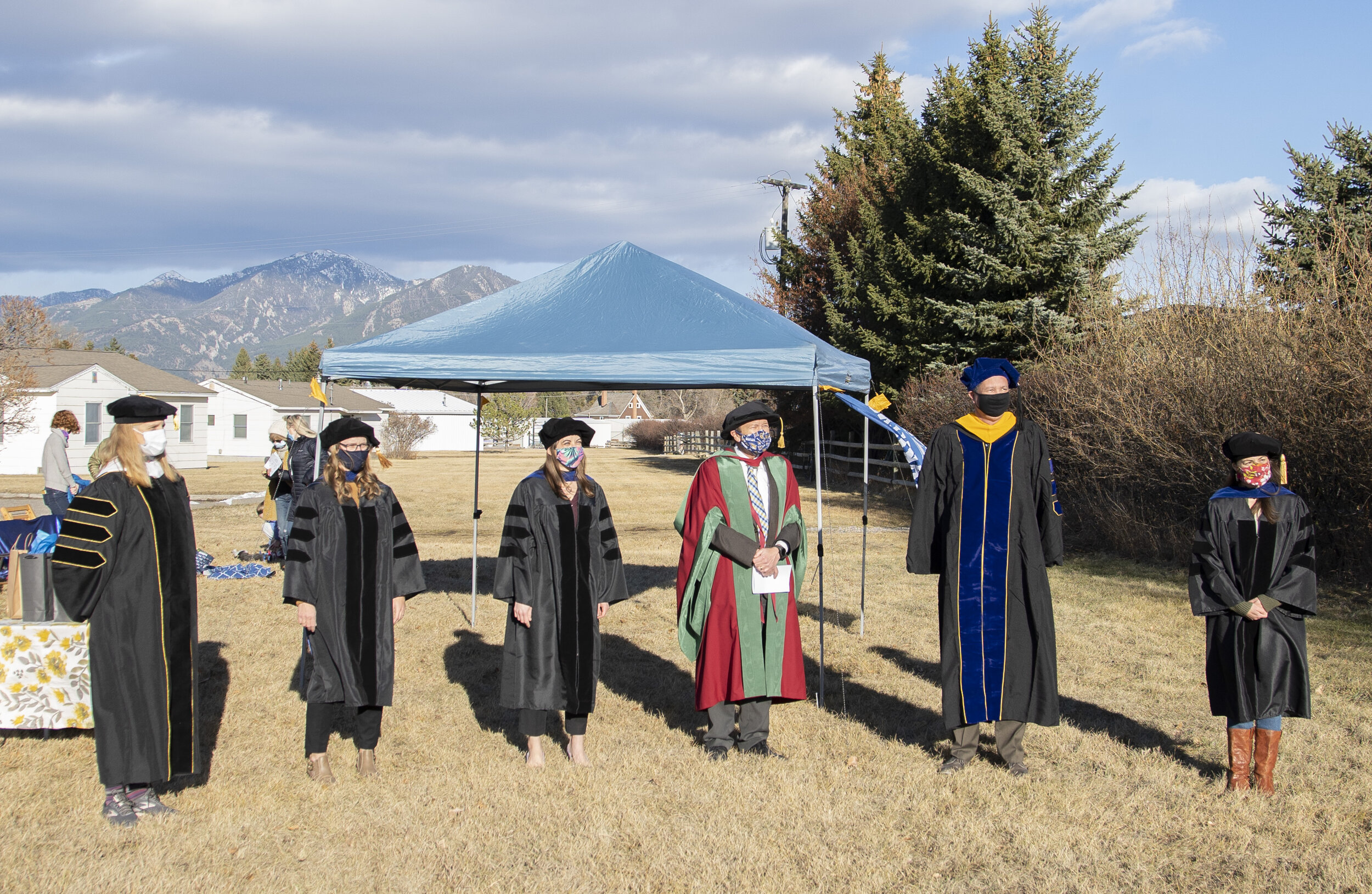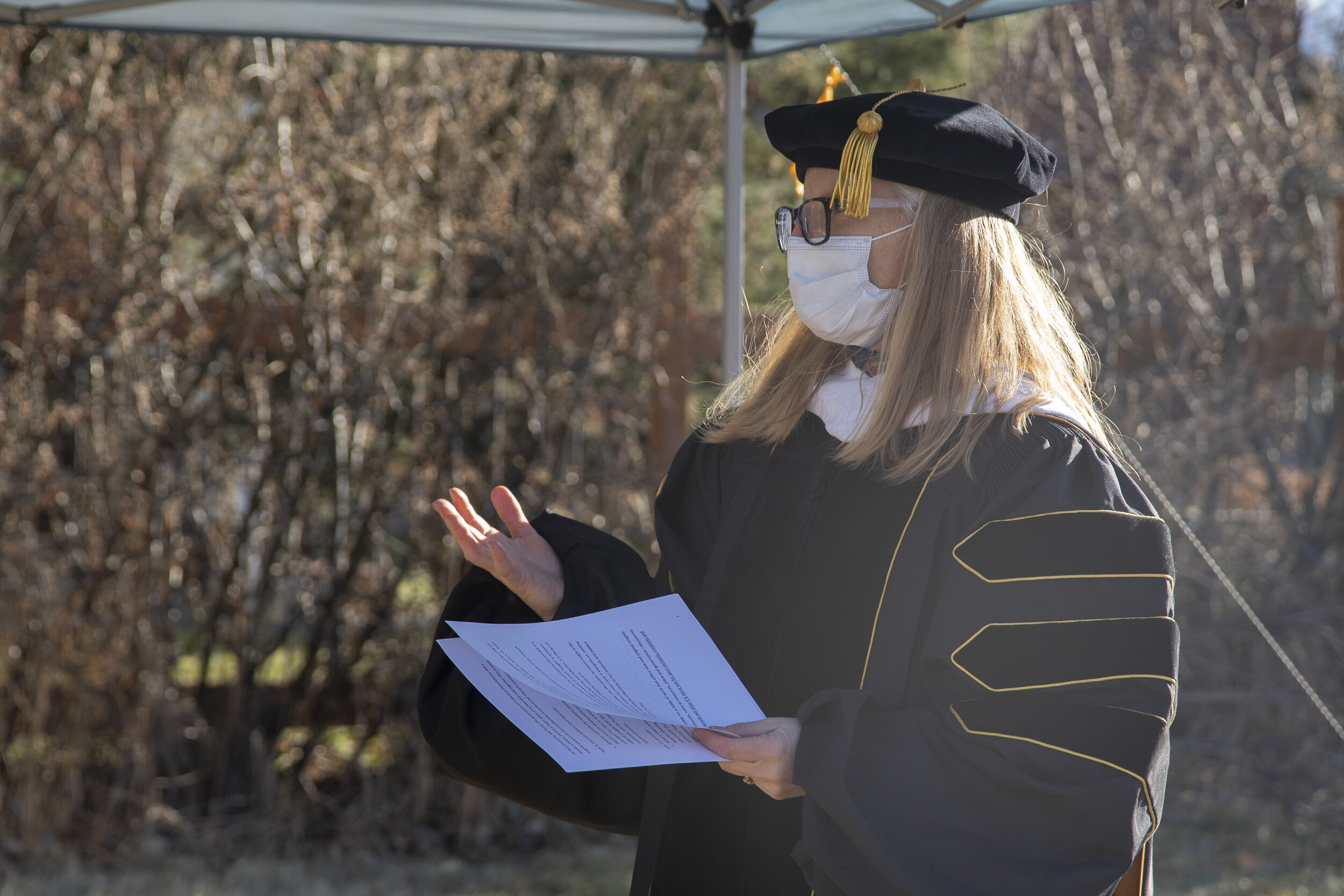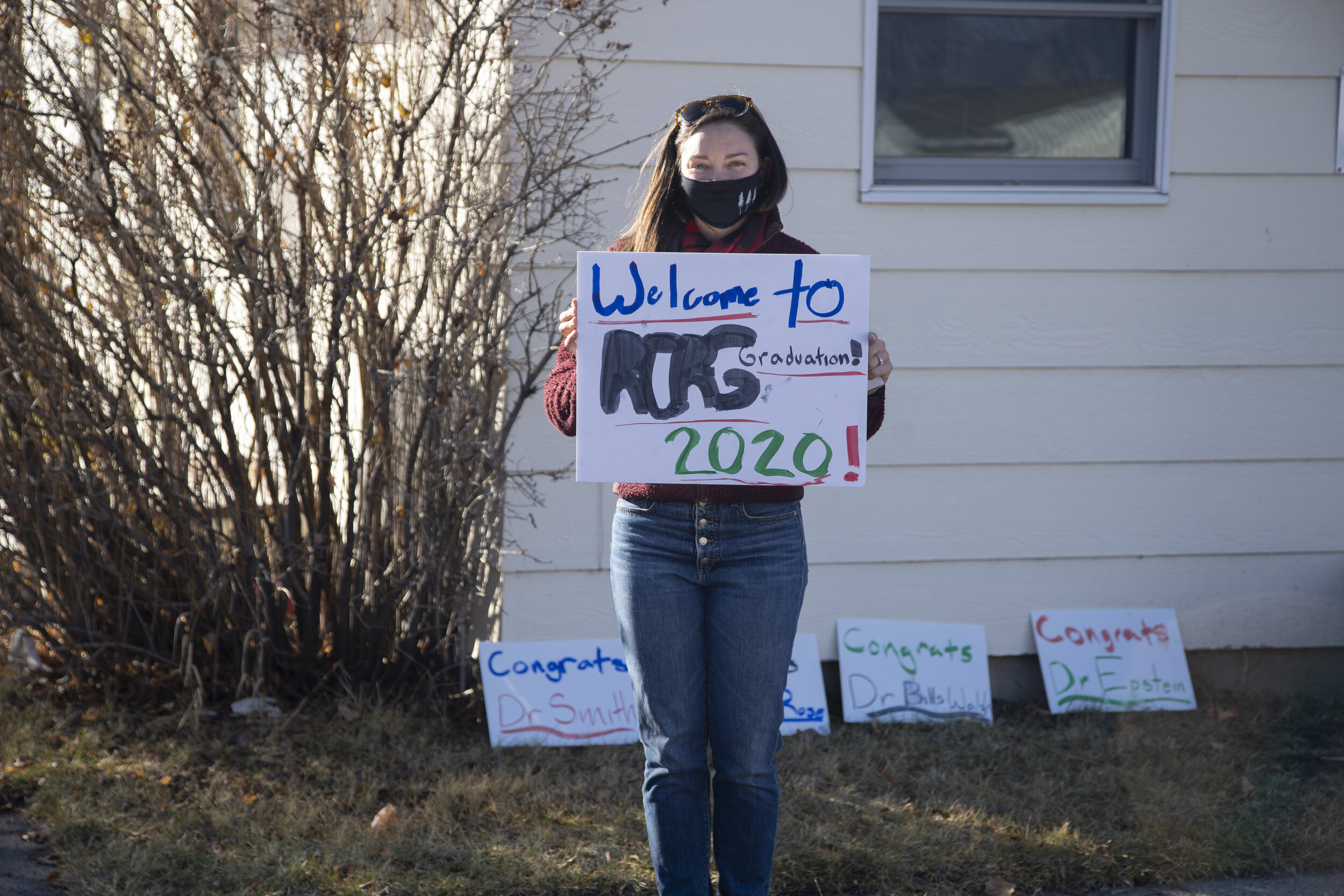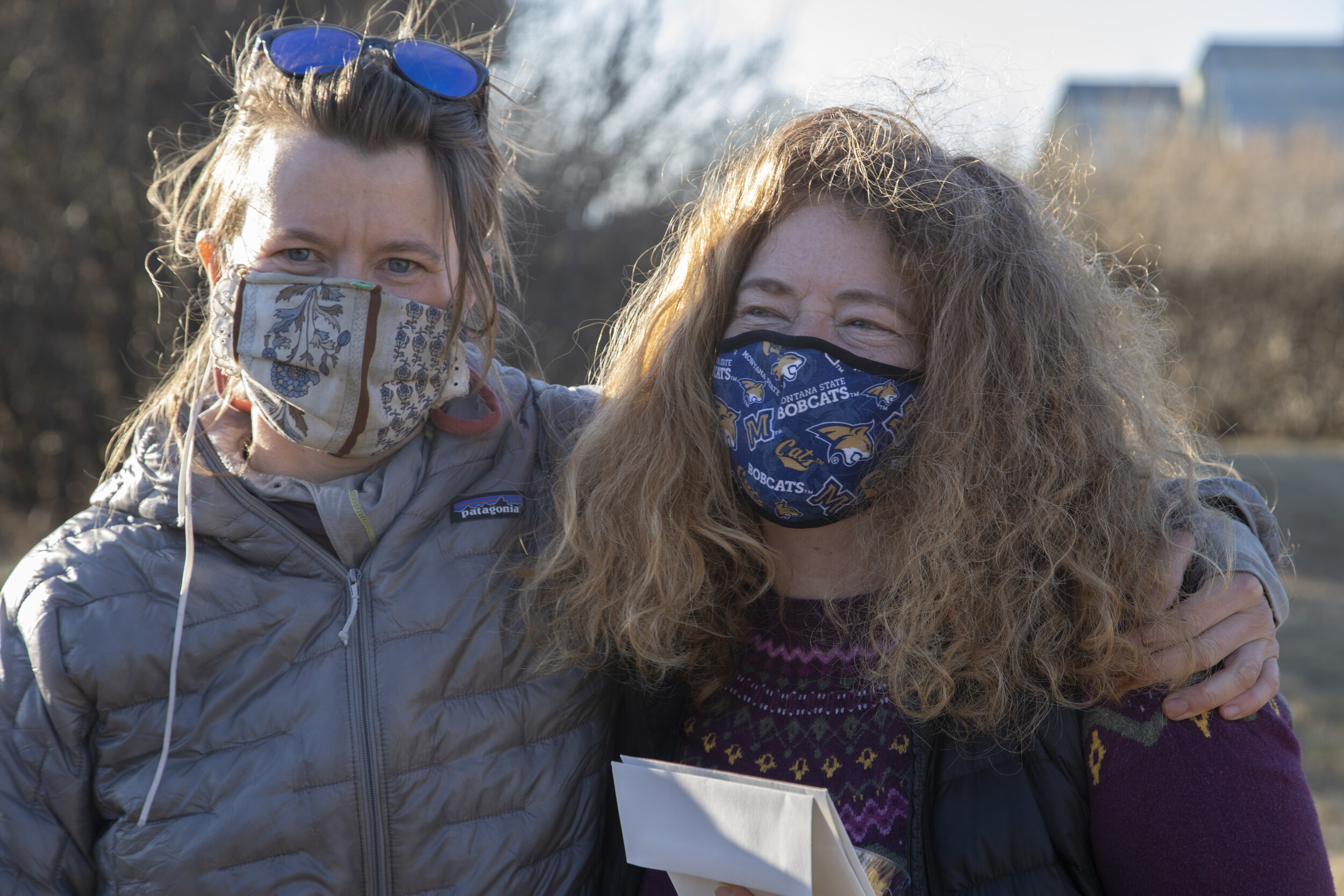The Resources and Community Research Group (RCRG) is excited to announce four new graduates; Dr. Bills Walsh, Dr. Epstein, Dr. Smith, and Jackson Rose, MSc. These four students have worked extremely hard to accomplish and earn the following degrees.
Dr. Katie Bills Walsh has earned a PhD in Earth Sciences and Geography studying Coalbed Methane Reclamation Activities in the Powder River Basin, Wyoming. Dr. Katie Epstein earned a PhD in Ecology and Environmental Science focusing her research on The Amenity Transition and Elk Management in the Greater Yellowstone. Dr. Kris Smith earned a PhD in Earth Science and Geography studying Opportunities & Resilience Traps at the Energy-Agriculture Nexus in the Bakken Shale Play of Montana and North Dakota. Jackson Rose has earned his masters in Earth Sciences- Geography based on his research on the role of community benefits agreements in negotiating rural development and modern mineral mining. On November 18, 2020, Dr. Julia Haggerty addressed the graduates with the following commencement speech.
I would like to address our graduates now, with the single goal of honoring you and your hard work and accomplishments. Dr. Bills Walsh, Dr. Epstein, Dr. Smith, and Jackson Rose, MSc., congratulations.
My remarks are organized around two fundamental principles of our research collaboration, the RCRG.
First, this celebration is fundamentally about the joy and opportunity possible in a life devoted to insight. There is no single endpoint at which “insight” is achieved – insight is a practice that insists on continual learning and reflection. It is the act of refusing opacity, or at least, relentlessly chipping away at it.
Scholars, like the four we celebrate today, are the people for whom insight is life-sustaining. Figuring something out makes our heart race: it energizes us. Landing upon a way to communicate our insights effectively to our students and readers makes our hearts soar: it gives us joy.
Insight is our vocation.
Each of you is responsible for a body of work that offers new and original insights at the nexus of livelihoods, natural resources, place and governance—discoveries and analysis that would not exist if it were not for your curiosity, creativity and determination.
At this ceremony, we honor the generation of 3 doctoral dissertations and a master’s thesis. Each is a major piece of scholarship and together they provide original answers to two profoundly important and relevant questions:
Katie B, Kris and Jackson, your work asks:
· Whether and how the residents and local governments of places that host natural resource development can bend those industries to fit local priorities? You help us to know and see what the outcomes of that very difficult struggle looks like from the perspective of local environments, livelihoods, and the human and physical infrastructure from which regional futures will evolve.
Katie E’s work asks:
· What it means when rural regions are the solution to the problem of the need for meaning, status and identity on the part of those few individuals who control the vast sums of surplus capital enabled in our present political economy? How does the acquisition of property by the super rich shape environments, livelihoods, and the institutions that mediate among them?
For this audience, there is no need to state the obvious importance of these questions.
But in case your parents and families wonder why their talented student ended up in this faraway periphery studying in the oil fields, copper mines and ranches of America, let me say this:
· You may live in a post-industrial economy that makes the work of resource extraction easy to ignore—a world that engenders an illusion that our iPhones drops out of some cyborg womb fully formed. But resources are absolutely fundamental to our survival—humanity will never be free of resource production. If we can’t generate natural resources in ways that minimize damage to people and place, society self-destructs—if not materially, then certainly morally. Dr Bills, Dr. Smith, and Jackson Rose MSc are doing work that is fundamentally about avoiding societal self-destruction. It’s that important.
· The economy, is it often said, it the resources of a society, and how they are allocated. The allocation of rural property—an entity which is in itself laced with the legacies of conquest--is reaching untenable levels of inequality. The desires and whims of the .01% ripple across rural landscapes around the world at an increasing pace, leaving behind a world of elaborate gates and no trespassing signs. The super rich turn their money over, more or less tax free, in Montana’s real estate. Some may leave a landscape richer in terms of biodiversity in exchange for that profit, but most are eroding what was already a tenuously-held public commons—and as Katie’s work has shown, our public servants and the residents of rural landscapes shoulder the burden of managing the conflicts the loss of this commons creates.
My wish for all four of you is that you remain devoted to insight in all aspects of your life—demand it of yourself, your students, your friends and family, leaders of institutions that shape your world. Consider it your life’s purpose to craft warm and enticing invitations to the practice of insight.
What makes me most proud is that these insights have been made with a clear devotion to the places and people you have studied. As analytical and rich as your work is, it is free of clever critical riffs made for the sake of an ‘academic solo’ and recognition from academia’s in crowd. Indeed, your work is in fact harder to generate because of your commitment to what Kristin has so aptly called critical empathy, which means striving for authentic and genuine reporting on the good, the bad, and the ugly in ways that, again, invite rather than shut off insight in as many audiences as possible.
Empathy links closely to RCRG’s second fundamental value, interdependence.
Each of you has allowed yourself to ask for and receive help—help from your colleagues and teachers in the Department of ES and MSU, your research partners, your funders, your teachers, your families. These projects and your success, then, belong as much to your emotional and intellectual ecosystems as they do to you. We are creating a giant mural of gratitude on our whiteboard inside--in which these students attempt to name every person to whom they owe thanks--and when it is finished today, we will share it with as many of those people as we can. If you are here with us, you can be sure your name is on that board!
Jackson, Katie E, Katie B, and Kris, you four have also modeled and established an incredibly high standard of selflessness and collaboration as you have built the RCRG enterprise. Pretty much every time I see another faculty member in my department they go out of their way to say, and I quote: “Your students are just so awesome.” And by that they are referring not just to your excellent scholarship, but to your leadership as scholars who are building a better institution. In the many ways you help each other and our department and university communities, you are actively dispelling the damaging, oppressive patriarchal ideas that hold the academy back – replacing them with models of mutual aid and collaboration that are in the true spirit of the land grant institution. Thank you for doing this.
My hope for RCRG has been that it will personify Robert Frost’s silken tent—a tent in the sense of providing hearth and shelter for scholars. And more specifically like Frost’s tent in being a place that “loosely bound by countless silken ties of love and thought to every thing on the earth” – today I honor you as a group of incredible women and men who have erected this tent, and filled it with possibility.
Go forth and prosper.
